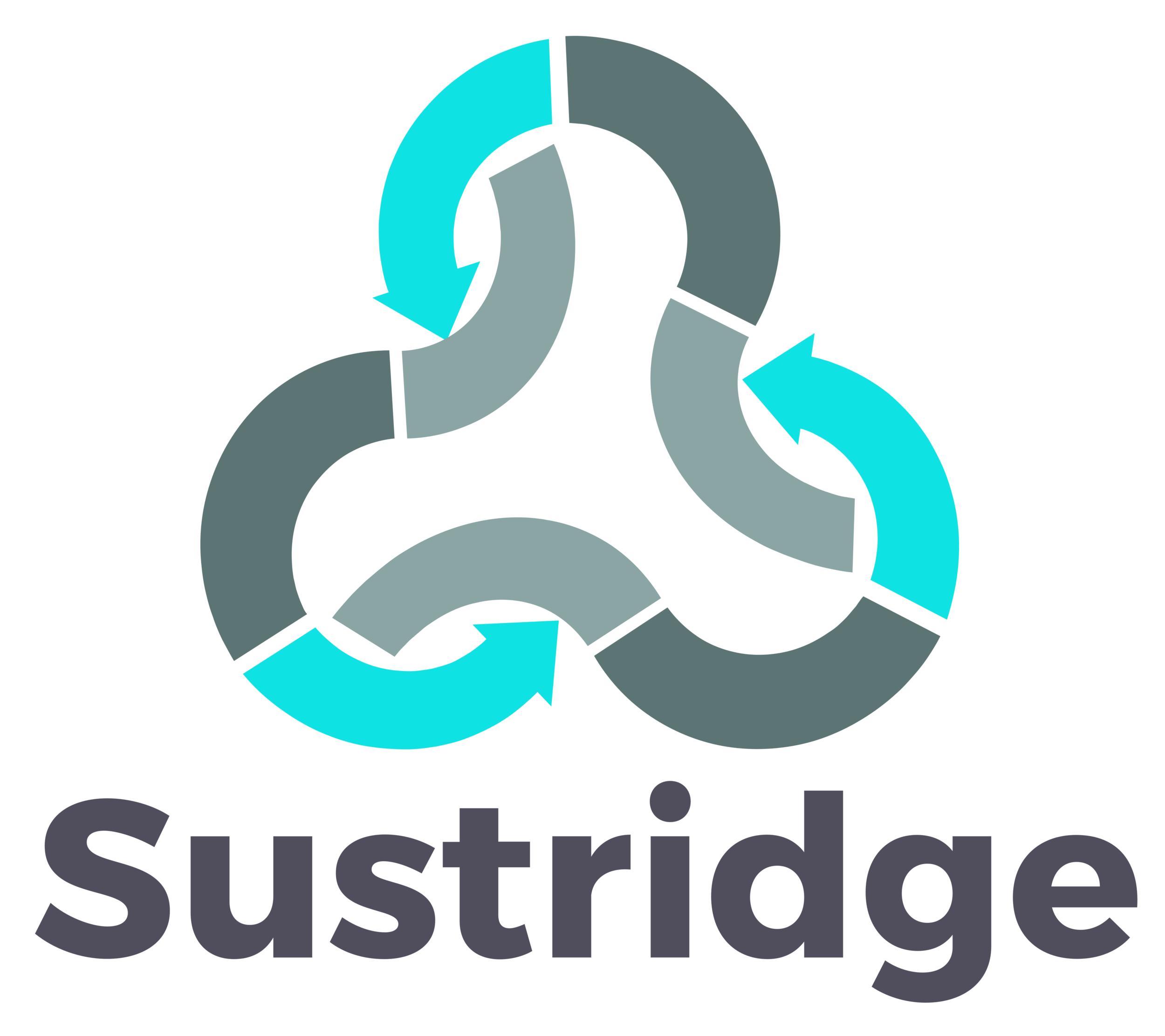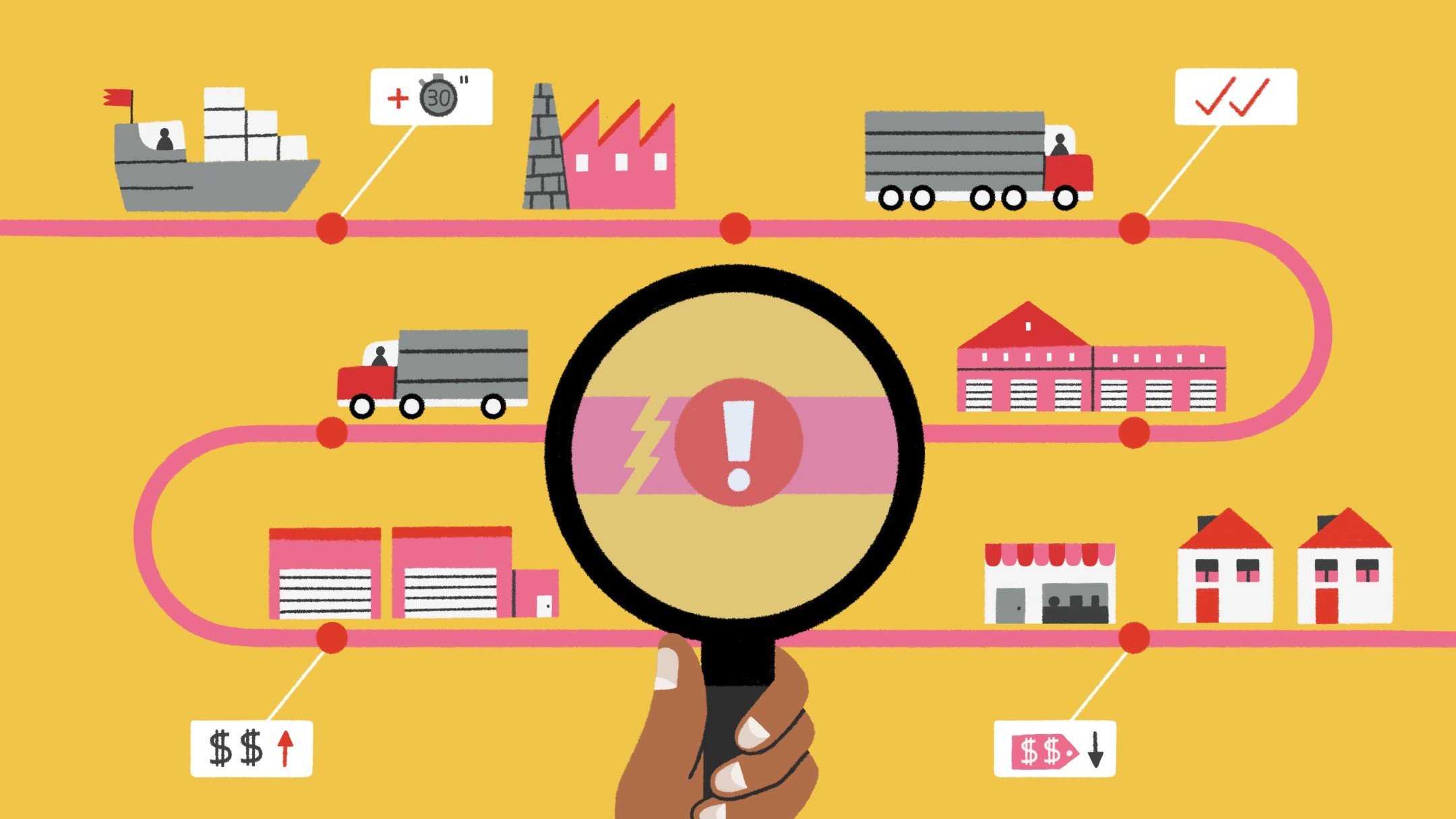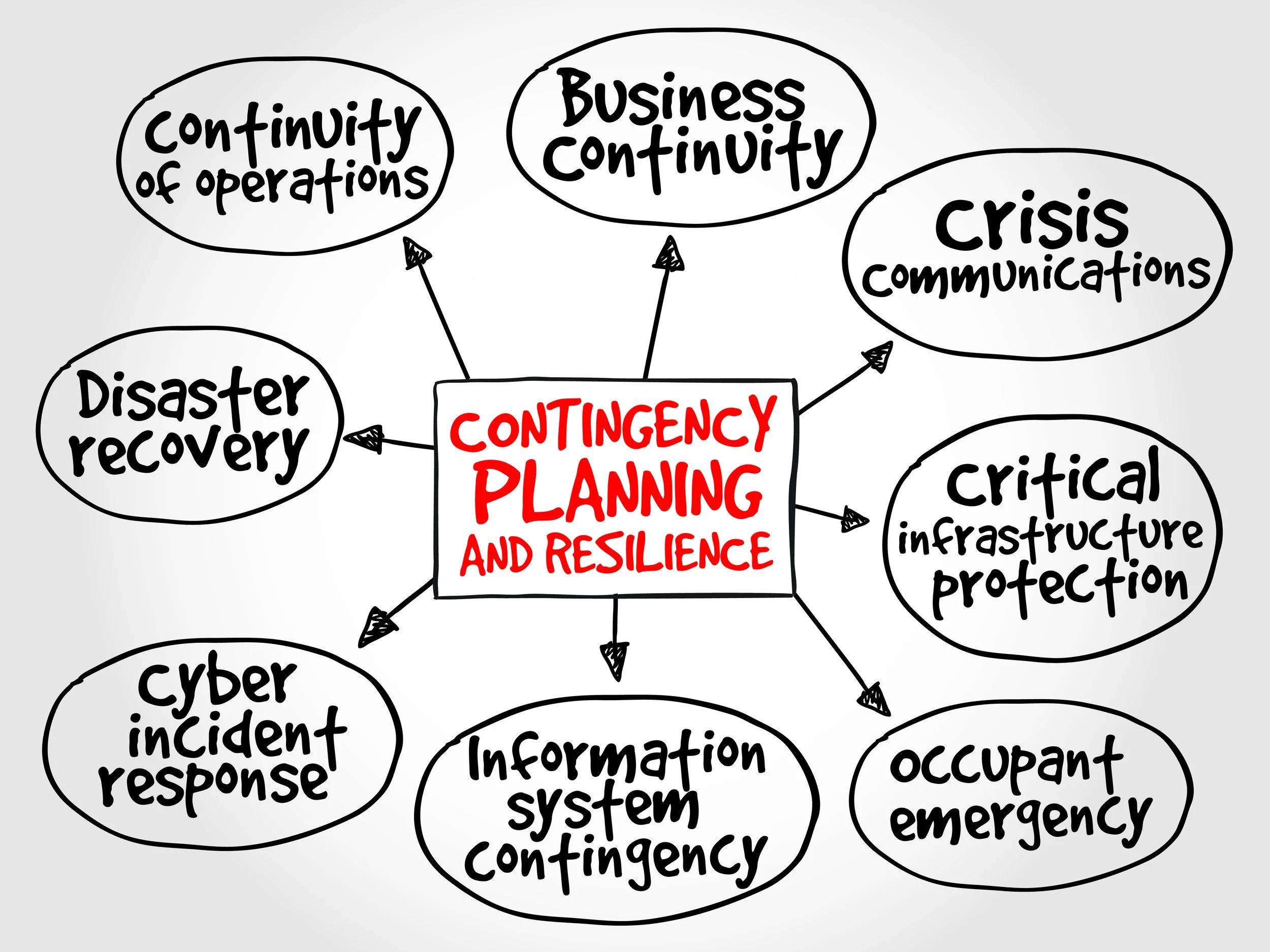Sustainable Supply Chain Consulting: Key to Climate Action
In the face of growing environmental challenges, corporations are recognizing the urgent need for responsible action. More and more companies are waking up to the realization that sustainability is not just an option but a necessity. Forecasts suggest that the global market size for sustainability is anticipated to hit around USD 61.92 billion by 2030! But where does this action start? For many, the core lies within the very backbone of business processes: the supply chain.
A company can enhance its ethical stewardship through a focused sustainable procurement strategy. Simultaneously, it can unlock untapped resources that could significantly alter its environmental footprint. Whether it's integrating ethical sourcing strategies, enhancing forecast accuracy, or employing deep expertise in sustainable methods, sustainable supply chains is starting to become a non-negotiable business need.
Sustainable supply chain consulting can assist those corporations striving to navigate the complex terrain of climate action. It’s about identifying unique solutions, not repeating stale obsolete strategies. It is about investing in a mission that resonates beyond profit margins. It is about leveraging analytical insights, by crafting compelling narratives that inspire transformation.
In this blog we will delve into the nuances of sustainable supply chains, exploring why sustainable supply chain consulting could be a helpful solution for those dedicated to paving the path for a world with a better future.
What is a Supply Chain?
Supply chain is a network that connects manufacturers, suppliers, and distributors to produce and deliver goods to the end consumer.
Put in the simplest terms, the sequence of activities and steps involved in the production and distribution of a product or service is referred to as Supply Chain.
It is a complex network that spans across various stages, from raw material extraction and processing to construction, shipping, inventory management and retail. Each step holds potential for environmental impact, making it crucial to consider the environment throughout the entire process.
Supply networks need to adopt sustainable practices to strike a balance between ecological responsibility, social justice and equality and economic profitability. This can involve reducing carbon emissions, waste, and resource consumption, along with ensuring fair labor and community well-being. The complexity of redesigning supply chain capabilities around these practices call for deep understanding and strategic planning, roles where an expert sustainable consulting firm like Sustridge comes into play.
What is Supply Chain Sustainability Consulting?
Supply chain consulting firms specialize in streamlining the movement of products and services from manufacturer to the end-user.
Before we dive into the details, let's clarify what sustainable supply chain consulting means.
Basically, the goal of the company providing services is to help corporations make the transition to a supply chain model that is more ethical and sustainable. To assist organizations in lowering their environmental impact, improving productivity, and fostering ethical sourcing and labor practices, these advisors provide vital guidance, ideas, and solutions.
Expert consulting services cover a wide range of areas, from energy consumption and material sourcing to logistics and packaging, all with an eye for environmental and social responsibility. By aligning their procurement process practices with international supply chain strategy standards, businesses take a big step towards substantial climate action.
Let us dive deeper into each key area, demystifying the complex web of decisions and strategies that shape sustainable supply networks that will provide a roadmap to an effective implementation.
A. Energy Consumption
Innovative energy-saving solutions in supply chain management.
A supply chain consultant might work closely with clients to quantify and analyze their GHG emissions throughout the supply chain, identifying opportunities to reduce emissions thorugh purchasing decisions. This may involve implementing energy-saving technologies, optimizing transportation routes to reduce fuel consumption, or exploring renewable energy sources for manufacturing facilities. Or, simply switching to another supplier that has drastically reduced GHG emissions, operates on 100% renewable energy or has ambitious goals to reduce emissions.
For example - Walmart has addressed the reduction of greenhouse gas emissions at every stage of its supply chain operations. This includes implementing energy-saving technologies in its stores and distribution centers, optimizing transportation routes, and working with suppliers to reduce energy consumption. (Source: Walmart Global Responsibility Report)
B. Material Sourcing
Industrial storage rack
Consultants help clients evaluate their current suppliers. This in turn helps them to identify opportunities for sustainable alternatives. This may involve sourcing materials from suppliers who prioritize environmentally friendly production methods or using recycled materials in the production process. By making conscious choices in material sourcing, businesses can minimize their impact on natural resources and reduce waste.
Taking significant strides towards sustainability, Nike, the global athletic wear leader, is committed to reducing its carbon footprint. A critical part of this initiative is the “Move to Zero” campaign, where Nike aims to reach zero carbon and zero waste. (Source : Nike Move to Zero)
C. Packaging
Packaging is another critical areas that sustainable supply chain consulting addresses.
A trusted advisor works together with businesses to optimize and minimize packaging waste. This may involve implementing innovative packaging designs that use less material or exploring alternative modes of transportation, such as rail or water, to reduce carbon emissions from shipping.
For example - Unilever, a major player in the consumer goods sector, has been proactive in reimagining its packaging solutions to minimize environmental impact. They have worked on innovative packaging designs that reduce material usage, such as the “Love Beauty and Planet” product line, which uses lightweight bottles made from 100% recycled plastic. (Source: Rethinking plastic packaging)
D. Ethical Sourcing and Labor Practice
Furthermore, sustainable supply chain consulting also emphasizes the importance of ethical sourcing and labor practices.
Sustainable consultants assist businesses in evaluating their suppliers' labor conditions, ensuring fair wages, safe working environments, and adherence to human rights standards. By promoting ethical sourcing and labor practices, businesses can positively influence the welfare of workers and communities. This can also improve their brand credibility.
A brand worth mentioning here is Starbucks.
Starbucks implemented its Coffee and Farmer Equity (C.A.F.E.) Practices, a comprehensive set of social, economic, and environmental standards for coffee buying. These standards encourage suppliers to provide fair wages, safe working conditions, and adhere to human rights norms. (Source: Starbucks C.A.F.E. Practices)
Climate Resilience and Risk Management: The New Frontier in Supply Chain Sustainability
Supply chain sustainability now encompasses more than just reducing operational carbon emissions within the supply chain. Today, businesses are expected to anticipate and plan for climate-related risks. This involves increasing supply chain resilience to extreme climate events and finding ways to ensure continuity of business protocols amid these challenges.
Amidst the unfolding climate change narrative, it has become evident that this global issue transcends boundaries. It has a ripple effect on all aspects of the world, including the world's leading businesses. Economic disruptions, water scarcity, and rising extreme weather events pose significant risks to logistic systems worldwide. Corporations must weave climate resilience and risk mitigation into the fabric of their sustainability agendas.
With guidance from top climate change consulting firms in supply chain planning, organizations can develop strategies to mitigate climate-related risks and build more resilient supply chains. This approach involves a comprehensive assessment of climate change's vulnerabilities and potential impacts on various supply chain stages.
One aspect of this is to identify alternative sourcing options. By diversifying suppliers and geographically distributing production facilities, companies can reduce their vulnerability to climate-related disruptions in specific regions. Besides maintaining the steady flow of business operations, it also reduces the environmental toll of extensive transportation over vast distances.
Toyota's foolproof BCP which ensures an ever moving supply chain, come hail or snow
After a natural disaster disrupted Toyota's supply chain in March 2011, the organization realized that the wait time for semiconductors was too long to handle such sudden shocks. As a result, Toyota created a Business Continuity Plan (BCP) requiring suppliers to keep a stockpile of chips that could last from two to six months. This plan has helped Toyota avoid the global semiconductor shortage caused by the pandemic, allowing them to continue production while other automakers had to stop. (Source: How Toyota thrives when the chips are down)
Supply chain forecasting - Illustration by Diego Blanco
Sustainable supply chain consulting firms, like ours, can also help businesses integrate climate risk assessments into their supplier selection process. By evaluating suppliers' climate resilience and risk management capabilities, companies can make informed decisions. Sustridge conducts complete climate scenario analyses for clients allowing them to fully understand climate risks and opportunities, and report on these in accordance with the Task Force on Climate Related Financial Disclosures (TCFD).
In addition to supplier diversification, investing in technological innovations can enhance supply chain capabilities and resilience in the face of climate change. For example, adopting advanced forecasting and monitoring systems can help businesses anticipate and respond to weather-related disruptions more effectively. Similarly, implementing renewable energy solutions can curb the environmental repercussions linked to supply chain activities.
Furthermore, sustainable supply chain risk management firms can assist companies in developing contingency plans and response mechanisms for climate-related emergencies. By establishing clear protocols and communication channels, businesses can reduce disturbances and guarantee the safety of their employees and assets during harsh climate circumstances.
It is important to note that establishing climate resilience in supply chains is vital for business continuity, as it aligns with broader climate action goals.
Transparency and Traceability in Sustainable Supply Chains
In the era of conscious consumerism, transparency and traceability have become significant drivers for supply chain sustainability. Consumers are increasingly demanding clear information about where and how their products are sourced, produced, and delivered.
Supply chain consultants are pivotal in helping businesses meet growing demands for traceability and transparency. This involves a multi-pronged approach: from transparent sourcing policies to cutting-edge traceability tech and stringent third-party audits.
Transparent sourcing isn't just a buzzword; it's a commitment. Companies disclose the ethical and sustainable origins of their raw materials. For instance, a fashion brand might exclusively use certified organic and fair-trade cotton, offering consumers a transparent look into their ethical production methods.
Traceability technologies, such as blockchain, are game-changers. They provide an unalterable record of a product's journey from source to consumer, ensuring complete transparency and verifiability.
Rigorous third-party audits are another important tool for maintaining transparency. These audits involve independent organizations assessing a company's supply chain practices to ensure compliance with ethical and sustainable standards. Businesses can undergo such audits to assure consumers that their products are sourced and produced responsibly.
By knowing the exact origins of raw materials and the processes involved in production, companies can pinpoint places to reduce their footprint. These could include implementing energy-efficient manufacturing processes, reducing waste generation, or sourcing materials from suppliers with strong environmental credentials.
How Sustainable Sourcing Contributes to Corporate Climate Goals
Sourcing materials ethically and sustainably reduces a firm' environmental impact and drives progress towards corporate climate goals. Whether it's timber sourced from responsibly managed forests or minerals from conflict-free zones, sustainable sourcing can make a significant difference.
When it comes to timber, sustainable sourcing involves ensuring that the wood used for various purposes, such as construction, furniture, or paper production, comes from responsibly managed forests. These forests are carefully monitored to ensure that only a certain amount of trees are harvested, allowing for natural regeneration and maintaining the overall health of the ecosystem. By sourcing timber from these forests, companies can contribute to the preservation of biodiversity, prevent deforestation, and reduce carbon emissions associated with the logging industry.
Similarly, sustainable sourcing of minerals plays a crucial role in corporate climate goals. Conflict-free minerals are those that are extracted without supporting armed conflict or human rights abuses. By exclusively sourcing minerals from conflict-free territories, companies can actively work to mitigate their involvement in any violence or exploitation that may occur in regions abundant with these minerals. This helps in reducing the negative social and environmental impacts associated with mining activities.
However, implementing sustainable sourcing practices can be a complex task for businesses. This is where consultants specializing in sustainable supply and value chain management come into play. These experts have the knowledge and expertise to assist businesses in identifying, vetting, and partnering with sustainable suppliers. They can help companies navigate the intricacies of supply and value chain management, including conducting audits, assessing supplier practices, and implementing sustainable sourcing strategies.
Consultants can also provide guidance on establishing clear sustainability criteria for supplier selection. Evaluating suppliers enables companies to build resilient supply chains, comply with regulations, and generate positive social and environmental impact. Partnering with sustainable suppliers helps businesses reduce their environmental impact, enhance brand reputation, and attract environmentally conscious consumers.
Renewable Energy in Sustainable Supply Chain Management
Shifting towards renewable energy sources is a key aspect of making the supply chain services and chains sustainable. Be it solar energy for warehouses or biofuels for logistics, renewable energy adoption significantly reduces carbon emissions. By harnessing the power of the sun or utilizing organic materials, companies can contribute to a healthier future while also reaping financial benefits in the long run.
However, switching to renewables is not a simple task that can be accomplished overnight.
It requires careful planning, strategic decision-making, and substantial investment. Sustainable supply chain consultants play a crucial role in facilitating this transition. These experts provide the necessary guidance to assess renewable energy options, identify potential challenges, and seize beneficial opportunities.
When it comes to renewable energy adoption, one of the primary considerations is the suitability of the energy source for a company's specific operations. Solar energy, for example, is an excellent choice for warehouses with large roof spaces that can accommodate solar panels. On the other hand, biofuels may be more suitable for companies operating a fleet of vehicles, as they can replace traditional fossil fuels and reduce emissions.
With the support of sustainable supply chain consultants, companies can explore the financial viability of renewable energy endeavors. While the initial investment may be substantial, the potential long-term gains could be significant. Consultants can conduct detailed cost-benefit analyses, taking into account factors such as government incentives, energy savings, and potential revenue streams from excess energy generation.
Another crucial aspect of adopting renewable energy in supply chain management is the identification of potential challenges. Consultants can assess the impact of renewable energy integration on existing infrastructure, supply chain processes, and overall operations. They can help companies navigate potential roadblocks, such critical issues such as limited grid capacity, regulatory requirements, or technological constraints.
Moreover, sustainable supply chain consultants can assist in developing a comprehensive roadmap for renewable energy development and adoption. This includes establishing clear goals, outlining the necessary steps, and defining key performance indicators to track progress. By providing a structured framework, consultants ensure that the transition to renewable energy is a smooth and organized process.
By working closely with sustainable supply chain consultants, companies can unlock the full potential of renewable energy within their operations. These efforts help them showcase that they care about the environment. Additionally, embracing renewable energy can lead to cost savings in the long run, as companies become less reliant on volatile fossil fuel prices.
Transforming Supply Chains for Effective Climate Action
At its heart, transforming supply chains for sustainability is about aligning economic activities with the well-being of our planet. Every step taken towards a greener supply chain helps us progress in the fight against climate change. But for these transformations to be effective, organizations require comprehensive strategies, tools related services, and partnerships - elements that sustainable supply chain consultants bring to the table.
Whether it's reducing waste, optimizing logistics, sourcing responsibly, using renewable energy, or increasing transparency, the role of these consultants is pivotal in facilitating tangible climate action within the corporate sector.
ESG Performance in Sustainable Supply Chain Consulting
ESG (Environmental, Social, Governance) performance is a crucial aspect of corporate sustainability and supply chain risk management. Companies with strong ESG performance demonstrate their commitment to sustainability not just in environmental terms, but also in relation to social and governance practices. This includes everything from labor rights and fair trade to transparency and corporate responsibility.
Consultants offering such services advise clients on how to integrate ESG performance into the firm and supply chain. They help businesses identify ESG risks and opportunities and implement best practices to elevate their sustainability efforts.
Packaging, Sustainability, and Climate Action: The Untold Connection
Packaging often represents a significant portion of a product's environmental footprint, yet it's frequently overlooked in the context of supply chain sustainability. Optimizing packaging for sustainability can result in substantial reductions in waste and carbon emissions.
From choosing eco-friendly materials to implementing reuse and recycling strategies, sustainable supply chain consultants can provide and deliver valuable insights and guidance on green packaging initiatives to global leaders. Their expertise can help businesses untangle the complex connection between packaging, sustainability, and climate action.
Role of AI and Big Data in Sustainable Supply Chains
The synergy between Artificial Intelligence (AI) technology and Big Data is driving remarkable changes in the way we manage supply chains. These technologies provide unique tools for predicting consumer demand, optimizing logistics, and tracking product lifecycle, all of which significantly contribute to sustainability.
Consultants specializing in this field help businesses harness this potential, enabling them to make data-driven, better decisions, and transform their supply chains. In this context, AI and Big Data capabilities offer exceptional opportunities to improve sustainability performance and drive corporate climate action.
Conclusion
Sustainable supply chain consulting presents an unparalleled opportunity and ability for corporations to elevate their climate action. As businesses come to terms with their critical role in tackling climate change, the support and guidance offered by these experts are becoming increasingly vital.












